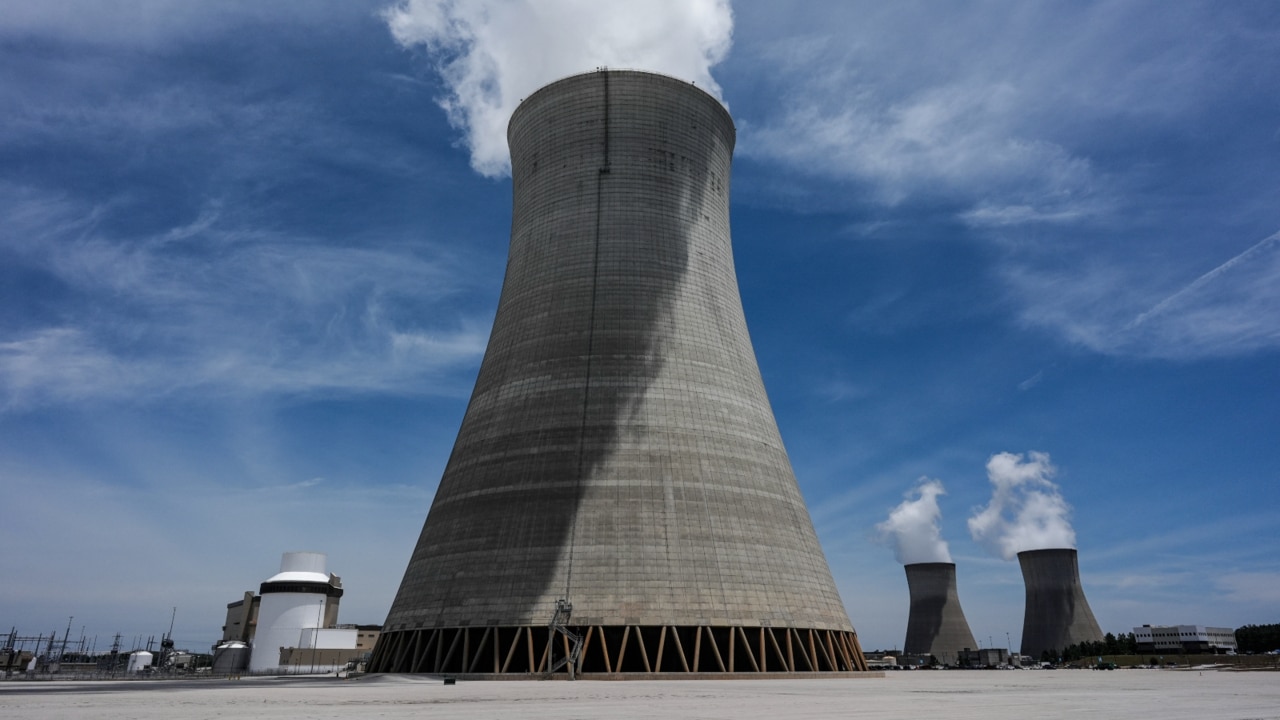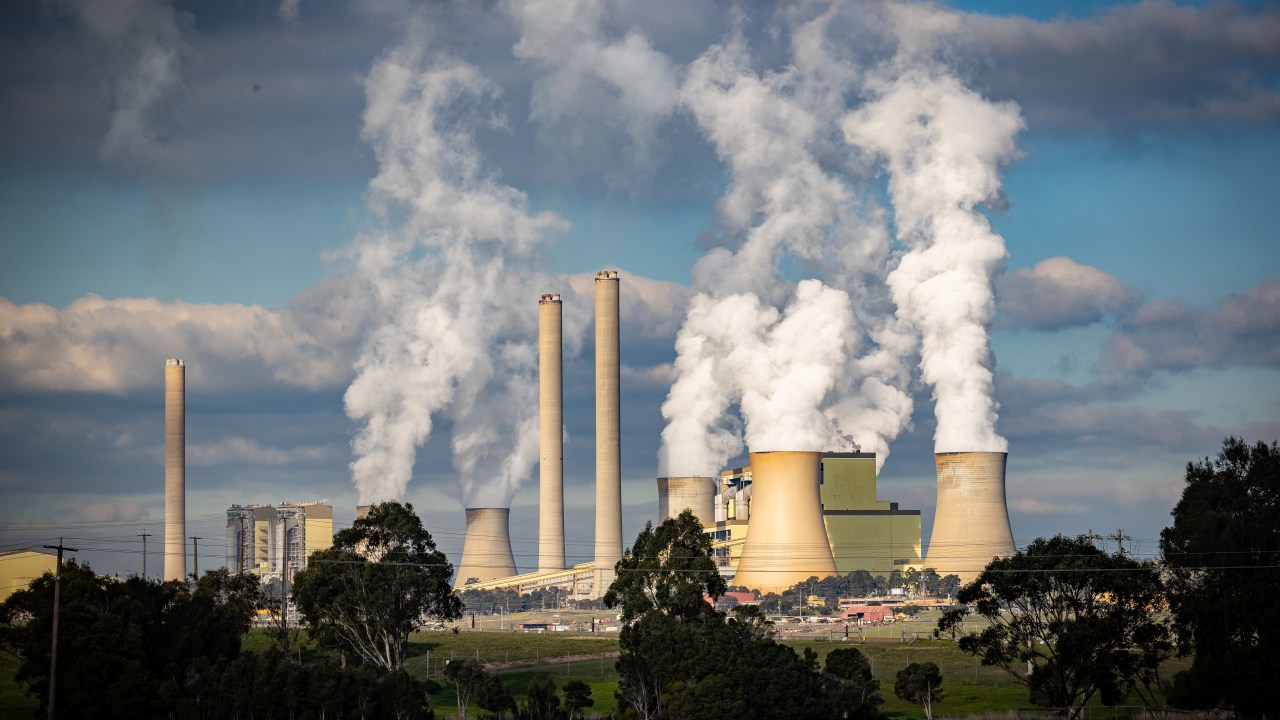Two Labor-aligned unions have been accused of “backflipping” on their “long-held” support for nuclear energy, after they attacked the Coalition’s proposal to build nuclear plants on the sites of aging coal plants.
Both the Australian Workers Union and the Mining and Energy Union (formerly the CFMEU’s mining and energy division) have long records of supporting nuclear energy, with the head of the AWU lobbying the government to lift the ban on nuclear as recently as December last year.
Despite this, both the AWU and MEU condemned the Coalition’s nuclear policy after the opposition revealed the seven sites where it is proposing to build nuclear reactors to replace aging coal-fired power plants.
Opposition leader Peter Dutton revealed the sites in a major announcement on June 19, with Mr Dutton pitching the plan as a policy that could “underpin a century of economic growth” while also providing jobs for the communities where the plants would be located.
However, the proposal was quickly subjected to a barrage of attacks, with senior Labor politicians posting cartoons of three-eyed animals and unions sharing images of toxic wastelands as their response in what has been described “scare campaign”.
While neither the AWU or MEU reacted to the policy with images of toxic wastelands, both unions were quick to attack the policy.
The AWU hit out at the Coalition’s plans in a social media message posted just hours after the announcement, describing it as a “half-baked fantasy” that will “slam the brakes on our energy transition and put our industries in peril”.
“The Coalition must give up its nuclear dreaming and back the Future Gas Strategy,” AWU national secretary Paul Farrow was quoted as saying in the post.
In follow up posts the powerful union – which is aligned with Labor’s right faction – followed up with posts stating that this mean “investing now in firmed renewables backed up with gas.”
“It doesn’t mean sitting on our hands for decades to pay more for nuclear if and when it finally arrives,” the AWU post said.
“This proposal has no interest in solving real challenges faced by industry and workers today. Energy is not a political football: it’s our livelihoods. We deserve so much better.”
The comments were a far cry from the position Mr Farrow had advocated for just six months earlier, when he was quoted as one of several Labor figures calling on the Albanese government to lift the ban on nuclear.
In December 2023 Mr Farrow told The Australian that nuclear needed to be on the table to protect Australia’s heavy industry, arguing it was better of the planet if steel, aluminium and glass were made in Australia than in less regulated countries.
“If we want those industries to stay standing we need to accept that some combination of coal, gas or nuclear power is necessary,” Mr Farrow said, adding that it was one thing if nuclear didn’t stack up on cost and another for it to be opposed because of an outdated “twentieth century ideology”.
The AWU national secretary went on to say that Australia “cannot sustain, let alone grow, its heavy industry sector on renewables alone”.
“One day we’ll get there, but anyone serious will tell you that day is a fair way off,” Mr Farrow said.
Mr Farrow’s predecessor Dan Walton was also a nuclear advocate, arguing in 2021 that the government needed to leverage AUKUS to create a civil nuclear industry.
“This is a golden opportunity to create the capacity to build small modular reactors capable of powering energy-hungry manufacturing, Mr Walton said in an article on the AWU’s website.
“We already have the uranium, why would we not develop the capacity to use it in safe and effective modern ways?
“If we don’t allow ourselves to explore the option, we’ll be letting hysterical scaremongers triumph over the environment and our economy”.
In a 2019 submission to a parliamentary inquiry, the AWU similarly recommended Australia lift the ban on nuclear, describing it as “the most viable technological proposition that can satisfy Australia’s twin needs of competitively providing baseload energy while reducing the overall carbon footprint of the economy.”
The report went on to state that Australia’s industrial sector “needs a large amount of reliable electricity” which “cannot currently be substituted for renewables and battery technologies.”
“These cannot be replaced by small-scale renewables in the existing grid, and it is unlikely to be replaced in great part by large-scale renewables and/or hydro,” the AWU report states.
The MEU also attacked the Coalition’s nuclear policy, despite years of advocating for nuclear as a solution to impending job losses from the closure of coal-fired power plants.
In a media release put out on June 19, the MEU described it as a “distraction” that would fail to provide jobs for workers in coal-fired plants before they shut down.
“Now is not the time for distractions. We need to be acting to deliver an orderly transition that focuses on jobs, economic activity in affected regions and positive social outcomes for affected workers while we still have the chance,” MEU General Secretary Grahame Kelly said.
However in 2022, Mr Kelly’s predecessor Geoff Dyke (who was Victorian Secretary of the CFMEU’s Mining and Energy Division before it split from off to form the MEU in 2023) said that nuclear would provide “secure, reliable, low-cost power”.
The late union secretary also argued that replacing Latrobe Valley coal plants with nuclear would help stem the 2600 job losses from the Hazelwood and Yallourn.
“If we were to repurpose sites with small modular nuclear reactors, 2770 megawatts of small modular reactors would create 810 direct, well-paying, ongoing jobs,” Mr Dyke said.
“About 1600 jobs in the Latrobe Valley would be required for construction over a decade. The construction jobs would add an estimated $240m per year to the region in income.”
The union official made a similar argument in an appearance before a Victorian Parliamentary committee in 2020, telling the committee that unless carbon capture and storage became viable, the “only cost-effective and viable source of power would be nuclear.”
Mr Dyke went on to argue small modular nuclear reactors were “ideal for Australia’s small-capacity grid”.
“The ban on nuclear in Australia makes no logical sense. We regard it as emotive, and it is out of step with other developed countries,” the union official said.
“We believe a mix of nuclear, hydro, wind and solar will deliver the lowest cost, most reliable, zero-emissions electricity grid to transition to as coal-fired power stations retire.”

Shadow employment and workplace relations minister Michaelia Cash slammed the AWU and MEU for failing to stand by their long-held positions on nuclear, telling SkyNews.com.au it showed the unions would “do anything” to back the Labor government.
“The union movement will do anything to back the views of the weak and hopeless Albanese Government, including backflipping on their long held position on the advantages to Australia of nuclear energy,” Senator Cash said.
“The reason they have backflipped is because they know the weak Albanese Government will deliver their every wish and whim.
“You can be certain that the union movement will have plenty more demands of the Albanese Government if they get another term.”
The unions were also attacked by the Libertarian Party (formerly the LDP), with the party’s Victorian senate candidate Jordan Dittlof asking “what changed to cause this complete and total backflip other than political convenience and survival of an ALP government?”.

